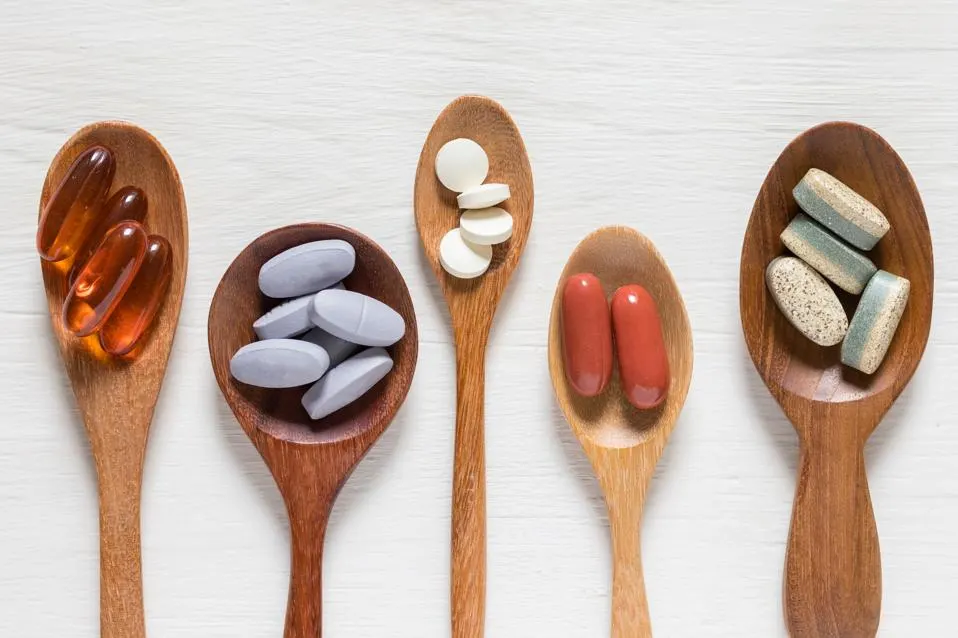Boost Your IVF Chances After 40: The Essential Supplement Protocol
- Michelle Lim
- Apr 2
- 3 min read
The Power of Supplements in IVF: A Guide for Women Over 40
When I first sat in my fertility doctor's office, staring at the long list of medications, supplements, and hormone levels to monitor, I felt a wave of overwhelm. Like many women in their late 30s and early 40s, I was juggling hope, urgency, and the quiet but persistent voice of science reminding me that time was a factor. But what I learned—slowly, and through experience—is that there's real power in giving your body the right kind of support.
For women in their late 30s and early 40s pursuing IVF, the right supplement strategy can help improve egg quality, hormone balance, and even implantation outcomes. No magic pills, of course—but a foundation of nutrition and targeted support can make a real difference.

Why Supplements Matter More in our late 30s and early 40s
As we age, the quantity of eggs decreases—but more importantly, so does the quality. Our eggs are more likely to have chromosomal abnormalities, and the cells that support them (especially the mitochondria) may not function as efficiently.
Supplements won’t turn back the clock, but they can optimize the environment in which eggs grow. They reduce oxidative stress, improve energy production in cells, and support hormone balance—all crucial factors in IVF success.
My Core Supplement Stack (Personal Favorites)
Ubiquinol
Ask any fertility-focused doctor what’s in their top three supplements, and ubiquinol (the active form of CoQ10) will likely make the list.
Why: Supports mitochondrial energy essential for egg quality
Dose: 200–600 mg/day, divided into two doses
My Brand: Designs for Health Ubiquinol—high-quality and well-absorbed
NAD+
This supplement is becoming increasingly popular in fertility protocols. NAD+ helps energize and repair cells, crucial for egg and embryo development.
Why: Enhances mitochondrial function and overall ovarian response.
Dose: 300 mg/day. I use 900 mg/day and sometimes 1,200 mg/day to give my body a boost.
My Brand: Tru Niagen (taken daily on an empty stomach)
Prenatal Vitamin
A good prenatal is foundational. I chose PF Pro Prenatal because it offers comprehensive support recommended by fertility experts. After experimented with many supplement pills, I have concluded that 6 PF Pro pills a day is a much simpler protocol to follow than piecing multiple bottles of supplements together.
Why: Provides essential nutrients including methylfolate, choline, iodine, and myo-inositol.
Note: Even though PF Pro Prenatal has myo-inositol, I occasionally add an extra scoop to further support egg quality.
Omega-3
I rely on this powerful blend of omega-3s to reduce inflammation and enhance implantation potential.
Why: Essential for embryo development and uterine blood flow.
My Brand: Orthoplex Clinical Lipids 2:1—trusted clinical-grade supplement.
Vitamin D3 (Liquid Form)
Vitamin D supports hormone balance and implantation.
Why: Supports immune function, ovarian health, and uterine receptivity.
Dose: 2000–5000 IU/day (depending on your blood levels)
My Choice: Liquid vitamin D3 for better absorption and ease of use.
Myo-Inositol
Even without PCOS, myo-inositol helps stabilize blood sugar and improve follicle quality.
Why: Enhances insulin sensitivity and egg maturation.
Dose: Extra scoop (approximately 2000 mg) occasionally, alongside prenatal.
Mito Pro (Orthoplex)
This powerful antioxidant blend is part of my daily regimen.
Why: Reduces oxidative stress significantly, protecting eggs and supporting mitochondrial function.
Frequency: Almost daily.
Acai Powder (Inspired by CCRM Study)
After learning that one of the top fertility clinics, CCRM, published research demonstrating acai powder’s positive impact on IVF outcomes, I incorporated it into my diet.
Why: Rich in antioxidants, proven to improve IVF outcomes
How: I use pure acai powder from Amazon (CCRM has its own blend, but Amazon's options are convenient and affordable).
Final Thoughts: Empowering the IVF Journey
Taking supplements gave me a sense of proactive care during a process that often feels overwhelming. They’re not magical cures—but they do significantly support your body’s readiness, especially after age 40.
If you're preparing for IVF, discuss these supplements with your fertility doctor or a nutritionist specializing in reproductive health. Optimizing your health through carefully chosen supplements can make all the difference in your IVF journey.


Comments